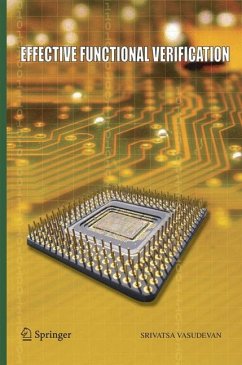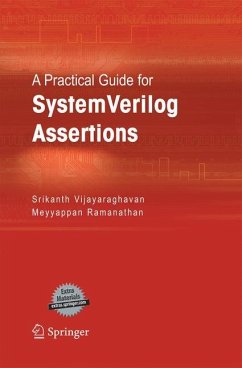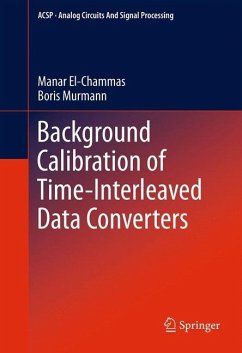
Time-Interleaved ADCs: A Mixed-Signal Solution for Clock-Skew Problems
A Theoretical and Experimental Approach
Versandkostenfrei!
Versandfertig in 6-10 Tagen
39,99 €
inkl. MwSt.

PAYBACK Punkte
20 °P sammeln!
Clock-skew errors in time-interleaved ADCs importantly degrade the linearity of such converters. These nearly constant but unknown errors lead time-interleaved ADCs into periodical non-uniform sampling. There are some techniques of facing clock-skew errors: two-ranks sample-and-hold, channel randomization, global passive sampling, clock-edge reassignment, all-digital and all-analog calibration techniques. We propose a new kind of mixed-signal clock-skew calibration technique that distinguishes itself by the simplicity of its analog components while keeping the inherent robustness of digital cl...
Clock-skew errors in time-interleaved ADCs importantly degrade the linearity of such converters. These nearly constant but unknown errors lead time-interleaved ADCs into periodical non-uniform sampling. There are some techniques of facing clock-skew errors: two-ranks sample-and-hold, channel randomization, global passive sampling, clock-edge reassignment, all-digital and all-analog calibration techniques. We propose a new kind of mixed-signal clock-skew calibration technique that distinguishes itself by the simplicity of its analog components while keeping the inherent robustness of digital clock-skew detections. A demonstrator shows the feasibility of our technique by correcting initial clock-skews of thousands of picoseconds with a granularity of 1.8 picoseconds. The theoretical work together with the experimental details developed in this book offer readers from the mixed-signal circuit field a comprehensive way to deal with clock-skew errors in future time-interleaved ADCs.












